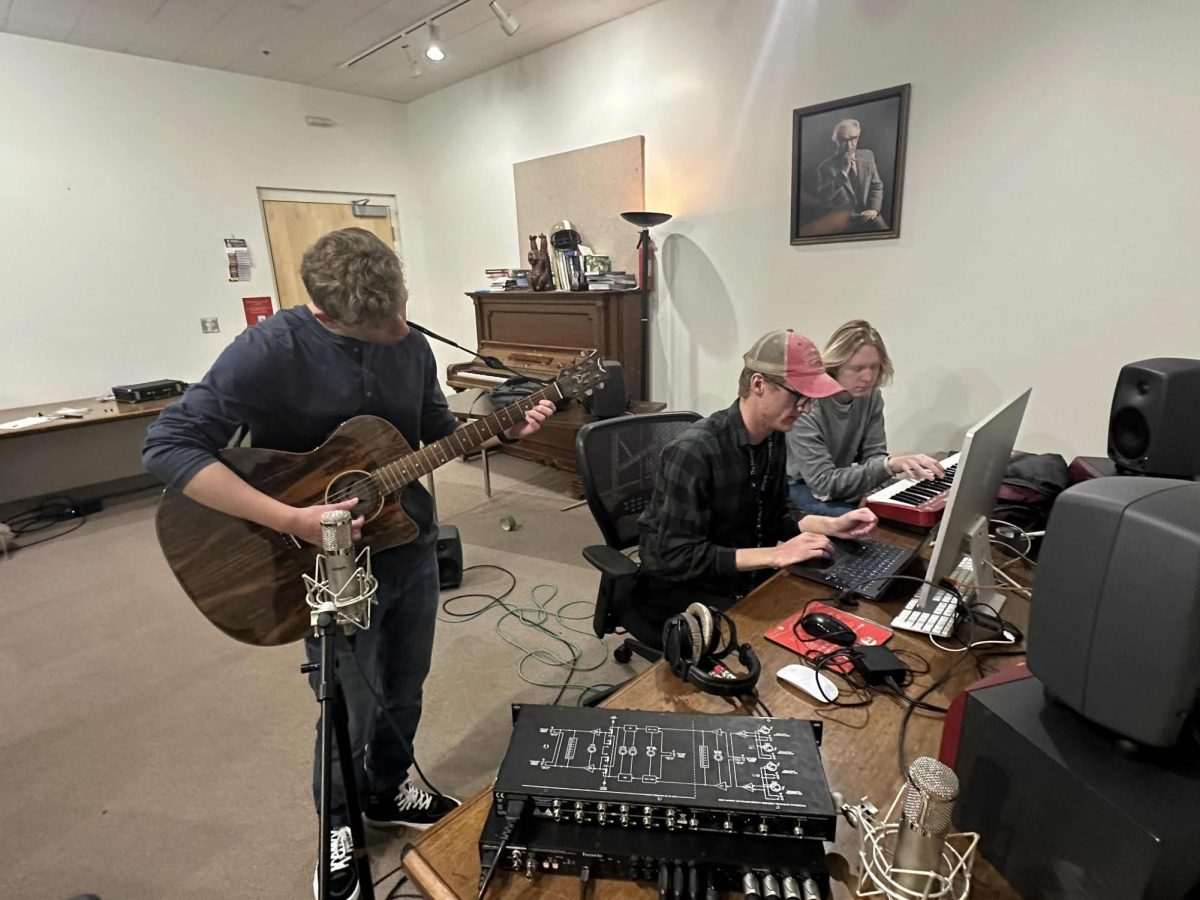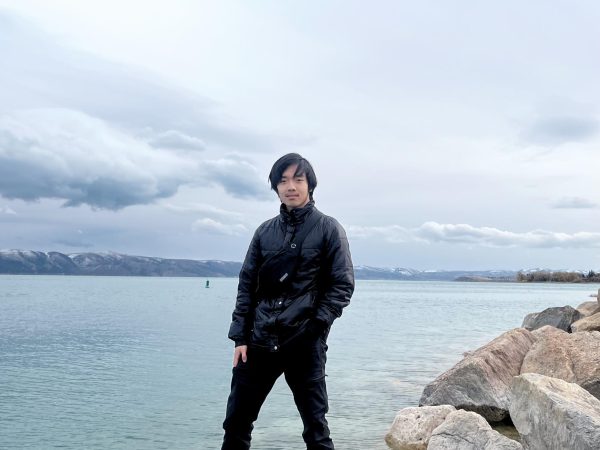The Audio Engineering and Production Club, started in 2016, has grown significantly since its initial conception, growing from an initial membership of 4-6 students to 30+ on Campus Connect. With the new growth, the club is working on expanding its offerings to students while helping members develop and use their skills.
“We’re trying to do some stuff outside of the studio and engage with some events on campus and maybe do some field trip kind of things or just off-campus stuff,” Max Morgan, the club president, said.
Audio engineering is the process of recording and mixing sounds. During meetings, members will share demos or ideas and workshop songs together by playing, recording and editing tracks together. Some tracks are started or further developed in the club’s Discord server. All members have access to shared files and audio to work with outside of the club’s meeting times.
The club is working on more collaborative sessions that each member can participate in, hoping to give all students an opportunity to showcase their talents. Right now, the club is working on compiling completed tracks into an album. They hope to get the album played on university radio.
“Some people, they have zero experience and coming to the club meeting is their first time interacting with any of the audio equipment or anything. And some people have seven to eight years of recording and production experience,” Morgan said. “We try and get everyone to maybe hop on with an instrument or something and just kind of make it as collaborative as possible with everyone.”
Making music fun and collaborative for people of all skill levels, and for those with or without an instrument, is one of the club’s missions. They also have access to recording equipment, pianos, synths and digital audio workstations (DAWs). DAWs bring together both synthesized and recorded audio files to edit and produce a track.
The club meets Thursdays from 7-9 pm in room 182 of Gardner Hall. Sometimes meetings might include a plan or lesson, too.
“Sometimes we try and go into a structure and maybe have something specific where we’re going to talk about EQ (equalization) or something,” Morgan said.
Equalization is a process involving volume adjustment to help a track sound clearer.
Making Music Communities
Though it’s not a prerequisite, several of the club’s members have previous musical experience.
“I started out on garage band, but then it’s kind of developed into more recording equipment stuff and the club has helped me get a better grasp on production and stuff,” Morgan said.
Soren Callo, one of the club’s members, has over 10 years of experience in songwriting and production. He reflected on his experience with the music scene at the University of Utah.
“I’ve honestly been rather disappointed with the University of Utah’s music scene. For the most part, music clubs have seemed to fizzle out after a few weeks,” Callo said. “It doesn’t seem like there are many other options for music clubs at the U.”
Most music clubs and programs at the University of Utah have an emphasis in performance or textbook-style music education. But, as the largest active club on the University’s Campus Connect page, the Audio Engineering club offers a unique resource for students looking for a more peer-centered experience in learning and making music.



